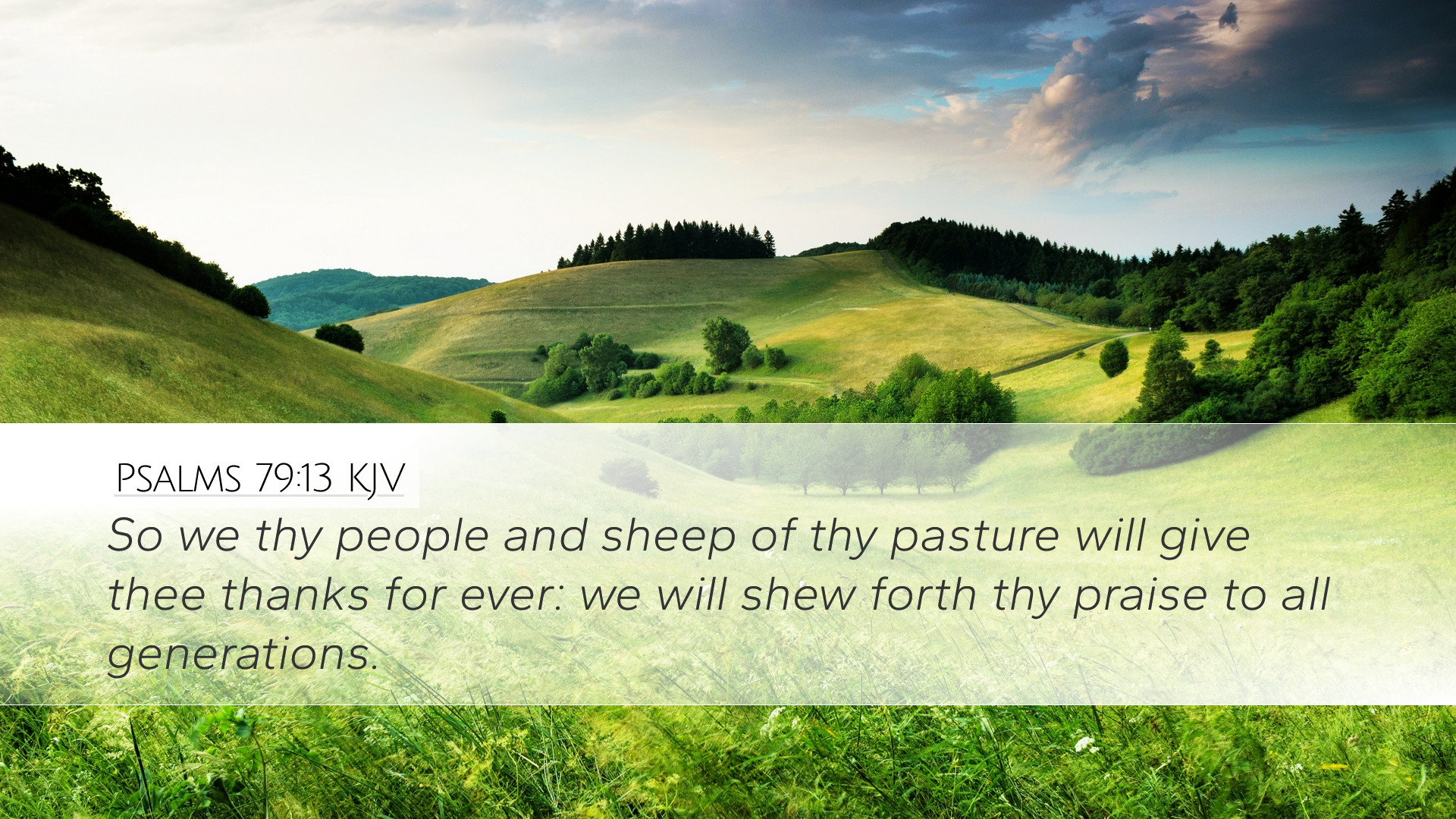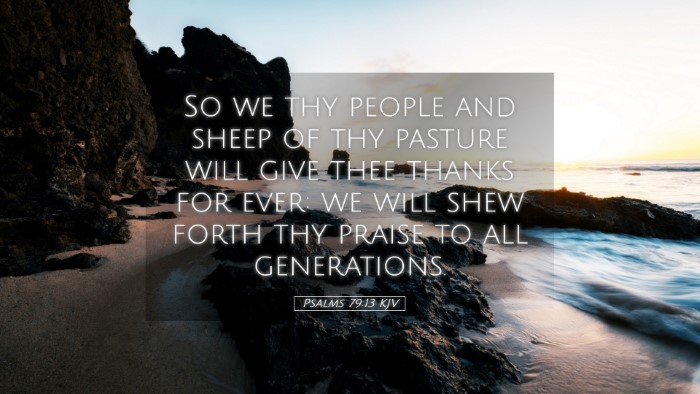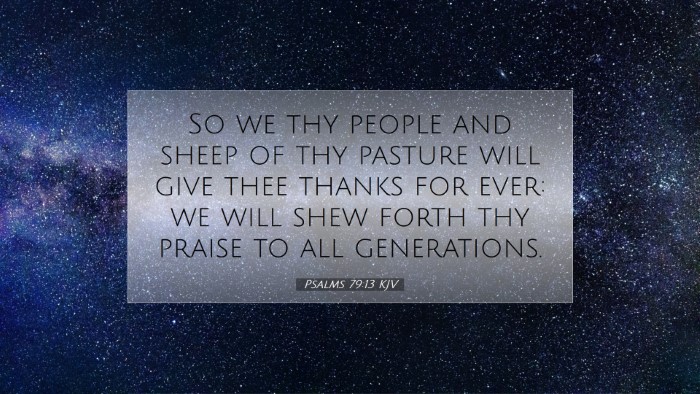Commentary on Psalms 79:13
Bible Verse: "But we your people, the sheep of your pasture, will give thanks to you forever; from generation to generation we will recount your praise." (ESV)
Introduction
This verse encapsulates a fundamental theme in the Book of Psalms—the enduring nature of God's relationship with His people and the response of gratitude and worship that such a relationship necessitates. It speaks profoundly to anyone engaged in the study of Scripture, underscoring both the responsibility of believers and the fidelity of God.
Contextual Analysis
The Psalms are steeped in a variety of human experiences, often expressing cries of anguish, joy, and thanksgiving. Psalm 79 deals specifically with national lamentation, as the psalmist addresses the devastation that has befallen Zion (Jerusalem) and its people. Here, we find a poignant pivot from lament to a declaration of faith and a commitment to acknowledge God’s sovereignty and mercy.
Theological Insights
In this verse, the psalmist acknowledges that God's people are akin to sheep under His care, which evokes rich imagery from the pastoral traditions of Israel. This metaphor emphasizes several key theological truths:
- Divine Shepherding: God is portrayed as a shepherd who guides, protects, and provides for His people. This metaphor is consistent throughout Scripture, most famously encapsulated in Psalm 23.
- Community of Believers: The verse speaks of "your people," highlighting the communal aspect of faith. The acknowledgment of believers as God's flock fosters unity and shared identity among the faithful.
- Thankfulness and Praise: The commitment to thankfulness reflects the appropriate response to God's goodness and mercy. This themes echo throughout the Psalms, emphasizing that gratitude is a continual practice, not just a reaction to favorable circumstances.
Commentary Perspectives
Matthew Henry’s Commentary
Henry succinctly encapsulates the pastoral imagery in this verse, emphasizing that just as sheep depend on their shepherd, so should the faithful rely on God. He notes that the psalmist shifts from lamentation to a confident assurance of God’s faithfulness and mercy, indicating that true worship stems from recognizing God's omnipotent care even amid distress.
Albert Barnes’ Notes
Barnes emphasizes the significance of the phrase "give thanks to you forever," pointing to the eternal nature of praise in the life of believers. He stresses that gratitude should not only be a spontaneous reaction to blessings but also a deliberate act of will arising from faith and understanding. He further notes that recounting God’s praise "from generation to generation" indicates a sacred responsibility to pass on the knowledge of God's mighty deeds to succeeding generations, reinforcing the continuity of faith.
Adam Clarke's Commentary
Clarke reflects on the implications of being "the sheep of your pasture," suggesting that it connotes a deep, personal relationship between God and His people. He also highlights the imperative nature of worship—it is both a duty and a joyful privilege. Clarke explores the historical context, noting that the psalmist's acknowledgment during a time of calamity serves as an essential reminder that worship should continue regardless of external circumstances, thus reiterating a commitment to God's majesty and providential care.
Practical Applications
Reflecting on Psalm 79:13 offers valuable insights for pastors, students, theologians, and biblical scholars alike:
- Emphasizing Community Worship: This verse serves as a reminder that worship is not an individualistic endeavor but a collective experience that fosters group identity and unity.
- Encouragement in Trials: The call to give thanks perpetually encourages believers to maintain gratitude even amidst trials, which can be a powerful testament to their faith and reliance on God.
- Intergenerational Responsibility: The concept of recounting praise from "generation to generation" underscores the importance of teaching the next generation about God's faithfulness, nurturing a legacy of faith.
- Balancing Lament and Praise: This passage teaches that it is permissible to bring lament to God while also committing to respond with praise, reflecting the full spectrum of the human experience of faith.
Conclusion
Psalms 79:13 serves as a powerful reminder of the appropriate response to God’s faithfulness throughout history. By acknowledging our identity as His sheep, committing to gratitude, and seeking to pass on this legacy to the next generations, believers can cultivate a deep and abiding relationship with their shepherd, sustaining a life of worship and praise that honors God in all circumstances.


